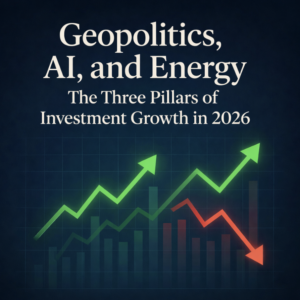Here’s how tariffs impact the stock market and its investors

Many would be wondering how tariffs impact the stock market and its investors. On ‘Liberation Day‘, the returned President Trump imposed tariffs well beyond even what he imposed during his first time, or any US President has imposed in living memory (at least in the enmasse manner he did so – imposing them on friends and foes alike).
We’ve written a lot about how individual companies could be impacted, but we thought it was worth writing a general overview on how tariffs impact the stock market more broadly.
What are tariffs?
Tariffs are taxes or duties placed on imported goods by a government. The goal of tariffs is usually to make foreign products more expensive, encouraging consumers to buy domestic products instead. They are a common tool used in trade policy to protect local industries and generate revenue for the government.
How Tariffs Impact the Stock Market
Tariffs have several impacts. Most notably, they impact trade and Business Costs, particularly on businesses that rely on imports or exports may face higher costs.
For example, companies that import raw materials or finished products from countries where tariffs have been imposed will typically have to pay more for these goods. This is why many analysts and economists are saying Trump’s tariffs will cause such an impact, because imported goods to the US will be priced higher than would otherwise be the case. Nike and Adidas shoes (made in Vietnam) will be subject to a 46% rate and it is inevitable that this will need to be passed on to customers.
This increases the cost of doing business and can squeeze profit margins. If the market anticipates higher costs for these businesses, their stock prices may drop.
From a consumers’ perspective, they’ll be paying higher prices because those businesses will inevitably pass on the costs through price increases. This can reduce consumer spending, especially if the price increases are significant. Companies that rely on consumer spending might see their stock prices fall as a result. We stress might because it will depend from company to company. Companies with goods or services that are staples or targeting higher income earners may see little to no impact. But companies with goods or services that are discretionary may well find out that they are ‘discretionary’.
As we’ve seen right now, the imposition of tariffs, especially if they are part of a trade war, can create uncertainty in the market. Investors typically dislike uncertainty because it is harder to predict how businesses will perform. This uncertainty can lead to increased volatility in stock prices as investors react to news and rumors about potential tariff escalations or trade negotiations.
Can there be any winners at all?
In theory, there are no winners. At least that is what analysts and economists suggest. The global trade ecosystem is so entrenched that consumers have taken it for granted that the goods they need will just be available at recent prices.
Have you ever heard of the theory of comparative advantage? This principle states countries can benefit from specialising in the production of goods and services where the opportunity cost compared to others is lower. To put this into practice, this theory would suggest the US shouldn’t produce textiles (leaving it to Vietnam as Nike and Adidas have) but should focus on aeroplanes because it has a higher opportunity cost for textiles as it could source them elsewhere, but can benefit from building planes because other countries will buy them.
But the new administration views the trade system as ‘ripping off’ Americans by offshoring jobs, and is keen to bring them back (or bring in extra revenue as a punishment for not doing so).
Is there any precedent? Not in recent memory, at least for a global trade war along the magnitudes of what appears to be forming. But looking at America imposing tariffs on others, Smoot-Hawley Tariff Act of 1930 is one.
Conclusion
In summary, tariffs can have a broad impact on the stock market by influencing the costs of doing business, affecting consumer spending, and causing investor uncertainty. The impact tends to be especially strong in industries that are sensitive to global trade flows, and in markets that are already in a state of heightened tension over trade policies
What are the Best ASX Stocks to invest in right now?
Check our buy/sell tips

Blog Categories
Get the Latest Insider Trades on ASX!
Recent Posts
Geopolitics, AI, and Energy, The Three Pillars of Investment Growth in 2026
Investing right now feels riskier than ever – messy geopolitics, the AI boom, and power shortages are all piling on.…
ReadyTech (ASX:RDY) Down 57%, Where’s the Operating Leverage?
ReadyTech Soft Half Keeps Pressure on the Stock ReadyTech has had a rough 12 months. The stock has fallen from…
Adisyn (ASX:AI1) Graphene Makes Drones Harder to Detect
Big Step in Drone Stealth With Graphene Adisyn (ASX:AI1) has successfully completed an early proof of concept demonstrating that graphene…


